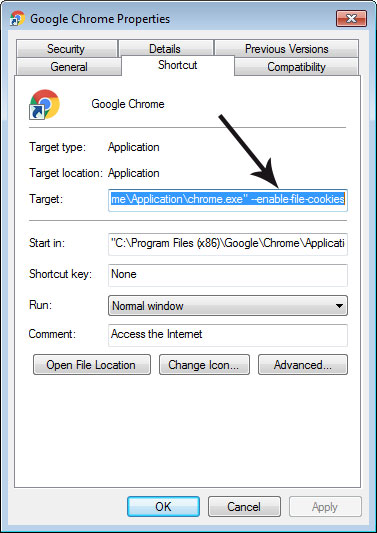I am using the jQuery Cookie plugin (download and demo and source code with comments) to set and read a cookie. I'm developing the page on my local machine.
The following code will successfully set a cookie in FireFox 3, IE 7, and Safari (PC). But if the browser is Google Chrome AND the page is a local file, it does not work.
$.cookie("nameofcookie", cookievalue, {path: "/", expires: 30});
What I know:
- The plugin's demo works with Chrome.
- If I put my code on a web server (address starting with http://), it works with Chrome.
So the cookie fails only for Google Chrome on local files.
Possible causes:
- Google Chrome doesn't accept cookies from web pages on the hard drive (paths like file:///C:/websites/foo.html)
- Something in the plugin implentation causes Chrome to reject such cookies
Can anyone confirm this and identify the root cause?

